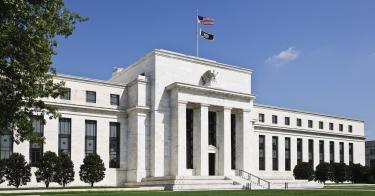The Federalist Society recently posted a podcast of me and R-Street’s Alex Pollock discussing Federal Reserve independence. This topic is always fun because so many people assume that (1) the Federal Reserve should be independent; and, (2) the Federal Reserve has always been independent.
The second of these assumptions is demonstrably false. Here are a few of the countless examples of U.S. Presidents pressuring the Fed (with Fed Chair dates provided):
- William Martin (1951 to 1970). President Eisenhower directed his Treasury secretary to put the “utmost pressure” on Martin to “get a greater money supply throughout the country.” When Martin refused, Eisenhower told him to reconsider or resign. Martin reconsidered.
- Arthur Burns (1970 to 1978). President Nixon repeatedly worked with Burns to ease monetary policy, with the view that it would help win elections. One of Nixon’s famous tapes captured the pair openly mocking the idea of Federal Reserve independence.
- William Miller (1978 to 1979). Finding Miller uncooperative, President Carter replaced him as Fed Chair, making Miller Treasury Secretary instead.
And in the words of the New York Fed:
The U.S. Treasury and the Federal Reserve System have long enjoyed a close relationship, each helping the other to carry out certain statutory responsibilities. This relationship proved beneficial during the 2008-09 financial crisis, when the Treasury altered its cash management practices to facilitate the Fed’s dramatic expansion of credit to banks, primary dealers, and foreign central banks. [Emphasis added.]
In fact, the Fed is nothing but a creature of Congress. The fiscal agent of the U.S. government, the Fed’s congressional mandate requires it to focus on (among other things) full employment and inflation. Regardless of the mandate’s details, the more U.S. debt the Fed holds, the more it enables deficit spending.
As sure as the sun rises, federal debt, deficit spending, inflation, and unemployment will always be political issues.
The other assumption, that the Fed should be independent, is more debatable.
On the surface, it seems obvious that the Fed should operate independent of national politics. Otherwise, U.S. monetary policy might be in shambles.
This view is very popular. For instance, Richard Fisher, a former Dallas Fed president, once queried “Who in their right mind would ask the Congress of the United States — who can’t cobble together a fiscal policy — to assume control of monetary policy?”
Yet, Nobel winning economist Milton Friedman, for one, thought that the Fed should be brought under the direct control of either Congress or the Treasury. Such a move, he thought, might result in more small policy mistakes, but it would prevent major disasters. Just as importantly, he argued that in a democracy:
It is intolerable that a group of nonelected people should have the power to create a major inflation or a major recession. Entirely aside from the economic effects I believe it is not an acceptable political system. To repeat, as a minor change I’d have the Fed made part of the Treasury. As an alternative, it would be better to have the Fed more directly under congressional control.
Whatever your view on the topic, leaving the Fed to operate as it currently does assumes too much. The idea that there is a settled body of science to guide monetary policy is grossly mistaken. (See page 3 of Michael Woodford’s book). Nor is it at all clear that the Federal Reserve era has been a major economic success.
At least one major peer-reviewed study of the Fed’s overall performancefound that the nation has experienced more symptoms of monetary and macroeconomic instability during the Fed era than in the decades before its creation. The study pointed out that while the Fed’s performance has undoubtedly improved since World War II, even its postwar performance has not clearly surpassed that of its undoubtedly flawed predecessor, the National Banking system, before World War I.
It is entirely plausible that some proposed alternative arrangements might do better than the Fed as presently constituted. An alternative structure for the central bank would likely improve accountability, similar to what Friedman envisioned.
As it stands, the Fed Chair is a political piñata for both Congress and the President. But making Treasury directly responsible for implementing monetary policy would remove one half of this sham.
Alternatively, Congress could truly isolate the Fed from national politics by scrapping the existing system entirely. It could then create a five-member monetary policy commission whose members are barred from ever traveling to Washington.
Either way, it is long past the time to do away with the myth of Federal Reserve independence.
This piece originally appeared in Forbes



